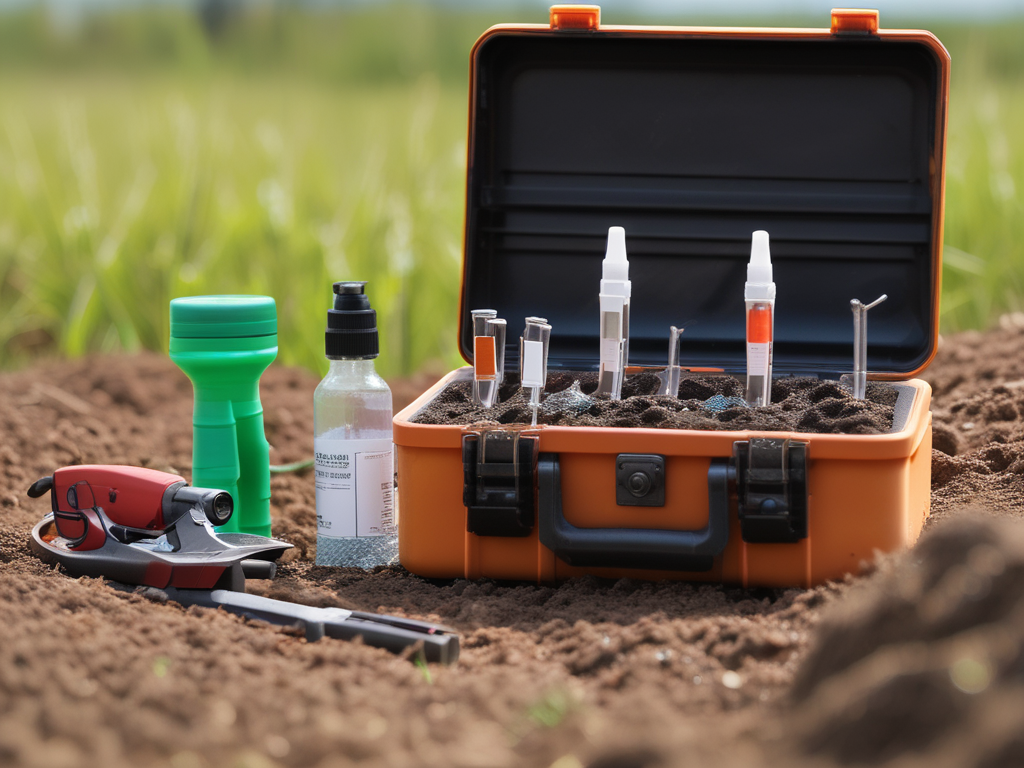In the world of agribusiness, understanding your soil’s composition is key to achieving optimal crop yields. Soil testing kits provide an efficient, cost-effective way to analyze soil health and make informed decisions about fertilization and crop management. This article reviews the top 5 soil testing kits, highlighting their features, benefits, and real-world applications in Nigeria and across Africa.
1. Luster Leaf 1601 Rapitest Soil Test Kit
Features:
- Tests for pH, nitrogen, phosphorus, and potassium.
- Easy-to-read results with color-coded charts.
- Includes 40 tests in total.
Benefits:
- Comprehensive analysis of key soil nutrients.
- User-friendly for both beginners and experienced farmers.
- Affordable and widely available.
In Nigeria, smallholder farmers in Oyo State have successfully used the Luster Leaf 1601 to identify nutrient deficiencies in their soil. By addressing these deficiencies, they have seen significant improvements in crop yields, particularly in maize and cassava production.
2. Soil Savvy Soil Test Kit
Features:
- Professional-grade testing with lab analysis.
- Measures 14 nutrients and provides fertilizer recommendations.
- Simple mail-in process with prepaid return envelope.
Benefits:
- Detailed and accurate results.
- Personalized fertilizer recommendations based on test results.
- Ideal for both small and large-scale farmers.
Farmers in Kenya’s Rift Valley have used the Soil Savvy kit to optimize their fertilization strategies. The detailed analysis and recommendations have led to healthier crops and better market prices for their produce, particularly in the tea and coffee sectors.
3. Environmental Concepts 1662 Professional Soil Test Kit
Features:
- Contains all necessary components for 80 tests.
- Tests for pH, nitrogen, phosphorus, and potassium.
- Durable carrying case for easy transport.
Benefits:
- High number of tests makes it cost-effective.
- Portable and suitable for field use.
- Reliable and accurate results.
In Ghana, cocoa farmers have adopted the Environmental Concepts 1662 kit to monitor soil health across different plots. This has helped them maintain optimal soil conditions, resulting in higher cocoa yields and better-quality beans.
4. MooSci Soil Test Kit
Features:
- Educational kit with 80 tests for pH, nitrogen, phosphorus, and potassium.
- Comes with detailed instructions and color comparison charts.
- Suitable for educational purposes and small farms.
Benefits:
- Great for learning and teaching about soil health.
- Easy to use with clear instructions.
- Affordable option for small-scale farmers and educational institutions.
In South Africa, agricultural schools have incorporated the MooSci kit into their curriculum. Students learn hands-on how to test soil and interpret results, preparing the next generation of farmers with essential skills for sustainable agriculture.
5. LaMotte Garden Soil Test Kit
Features:
- Professional-grade kit with 80 tests.
- Tests for pH, nitrogen, phosphorus, and potassium.
- Includes a detailed manual with instructions and soil management tips.
Benefits:
- High accuracy and reliability.
- Comprehensive guide for soil management.
- Suitable for serious gardeners and commercial farmers.
In Uganda, vegetable farmers in the Wakiso District have used the LaMotte kit to fine-tune their soil management practices. The kit’s detailed manual and reliable results have enabled them to produce high-quality vegetables that meet export standards.
Conclusion
Choosing the right soil testing kit can make a significant difference in your agricultural productivity. The kits reviewed here offer a range of features to suit different needs, from smallholder farms to commercial enterprises. By investing in a reliable soil testing kit, farmers in Nigeria and across Africa can enhance soil health, optimize fertilizer use, and ultimately increase their crop yields and profitability.
Ready to take your farming to the next level? Join our community for more expert tips, product reviews, and exclusive insights into sustainable agribusiness practices!


